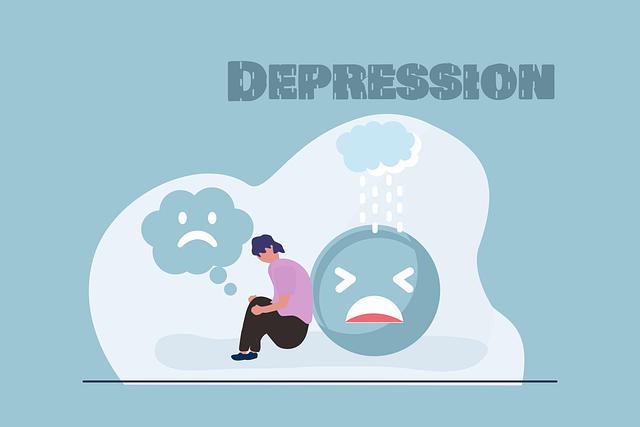Crisis intervention for elders requires a specialized approach addressing physical health changes, cognitive decline, and social isolation. Therapy for Elders and family counseling are key components, focusing on family dynamics and burnout prevention strategies for healthcare providers. Public awareness campaigns recognizing elder crises and trauma support services are crucial for timely intervention. Family counseling facilitates open communication and strengthens bonds, while mental wellness coaching programs empower seniors to navigate stress and seek help, fostering community healing. Post-crisis, tailored support for recovery includes safe spaces for emotional processing and mood management techniques, promoting resilience and long-term mental health for elders.
In today’s digital era, understanding crisis intervention strategies is crucial for supporting elders facing unique challenges. This article delves into essential aspects of elder care, including the role of family counseling in navigating crises and effective communication techniques during difficult times. We explore therapeutic techniques to stabilize and support elderly individuals, while fostering resilience post-crisis for both elders and their families. By integrating these strategies, we aim to enhance therapy for elders and strengthen family dynamics through sensitive guidance.
- Understanding Crisis Intervention for Elders: A Sensitivity to Unique Challenges
- The Role of Family Counseling in Navigating Elder Crises
- Strategies for Effective Communication During Difficult Times
- Therapeutic Techniques for Stabilizing and Supporting Elderly Individuals
- Fostering Resilience: Post-Crisis Support for Elders and Their Families
Understanding Crisis Intervention for Elders: A Sensitivity to Unique Challenges

Crisis intervention is a specialized approach tailored to address acute emotional distress in elders, recognizing their unique challenges and needs. While many universal strategies apply, understanding the aging process and common issues faced by this demographic is paramount. Elders may experience increased vulnerability due to physical health changes, cognitive decline, or social isolation, all of which can impact their ability to cope with crises effectively. For instance, a simple medical emergency could trigger significant anxiety or depression in an elderly individual, highlighting the need for tailored support.
Family counseling and therapy are integral components of crisis intervention for elders. Given that family dynamics play a significant role in an elder’s life, involving close relatives in the process can foster better understanding and care. Moreover, healthcare providers should consider burnout prevention strategies, as caring for elderly individuals with complex needs can be demanding. Public awareness campaigns on recognizing elder crises and accessing available trauma support services are also crucial in ensuring timely intervention and promoting community resilience.
The Role of Family Counseling in Navigating Elder Crises

Family counseling plays a pivotal role in crisis intervention for elders, offering specialized guidance tailored to navigate complex situations. When an elderly individual faces a crisis, whether it’s related to health, financial strain, or emotional turmoil, involving their family can be transformative. This collaborative approach leverages the support system that is often closest to the elder, fostering open communication and enhancing coping mechanisms.
Through therapy for elders and family counseling sessions, mental wellness journaling exercises and guidance can become integral parts of the healing process. By encouraging reflective writing, seniors can process emotions, gain insights into their experiences, and identify patterns that contribute to stress or anxiety. Additionally, mental wellness coaching programs development within this framework enables professionals to offer personalized strategies, focusing on improving communication among family members, fostering empathy, and strengthening bonds crucial for elder care.
Strategies for Effective Communication During Difficult Times

During crises, effective communication is key to providing crisis intervention. In the context of therapy for elders and family counseling, a calm and empathetic demeanor from counselors can significantly ease tension. Active listening, where counselors fully concentrate on both words and non-verbal cues, helps individuals feel heard and validated during stressful situations. Using simple, clear language and avoiding jargon ensures understanding, especially when dealing with vulnerable populations.
Integrating mindfulness meditation techniques into counseling sessions can aid clients in managing their emotions. Mental wellness coaching programs focused on developing resilience and coping strategies can empower individuals to navigate difficult times. Moreover, addressing the mental illness stigma through open dialogue creates a supportive environment where help-seekers feel comfortable seeking therapy for elders or family counseling, fostering community healing efforts.
Therapeutic Techniques for Stabilizing and Supporting Elderly Individuals

Crisis intervention strategies for elderly individuals often involve specialized therapeutic techniques to stabilize and support their unique needs. One effective approach is family counseling, which recognizes that elders are integral parts of their families and communities, and involving loved ones can significantly enhance recovery. This therapy facilitates open communication, helps resolve conflicts, and strengthens family bonds, ultimately fostering a supportive environment essential for emotional well-being promotion.
In addition to family counseling, tailored mental health education programs designed specifically for the elderly population play a crucial role in crisis intervention. These programs aim to increase awareness about mental health issues prevalent among seniors, such as depression and anxiety. By educating both elders and their families on recognizing early signs and accessing available resources, these initiatives contribute to developing public awareness campaigns that further support emotional well-being promotion techniques tailored to meet the specific needs of this demographic.
Fostering Resilience: Post-Crisis Support for Elders and Their Families

In the aftermath of a crisis, elders and their families often require specialized support to rebuild and recover. Fostering resilience is key to ensuring they can navigate the challenges that lie ahead. Therapy for elders and family counseling plays a pivotal role in this process by providing a safe space for open dialogue and emotional processing. Effective communication strategies become instrumental here, enabling individuals to express their feelings, fears, and needs without stigma or judgment.
Through mental wellness coaching programs tailored to their unique circumstances, elders can develop effective mood management techniques. These strategies help them cope with stress, anxiety, or depression commonly associated with crisis situations. By empowering both the elders and their families with tools for emotional regulation, these support systems contribute significantly to their long-term mental health and overall well-being.
In conclusion, effective crisis intervention for elders requires a multifaceted approach that integrates sensitivity to unique challenges, family counseling, strategic communication, therapeutic techniques, and post-crisis support. By leveraging therapy for elders and family counseling, we can stabilize and support these individuals during and after crises. These strategies not only foster resilience but also enhance the overall well-being of elderly individuals and their families, ensuring a brighter future filled with renewed hope and strength.









